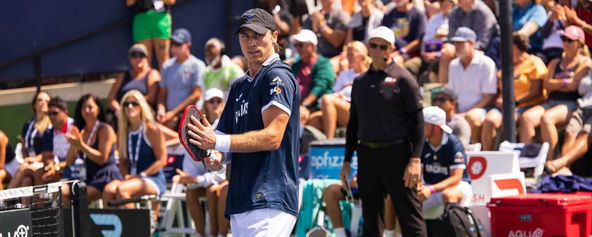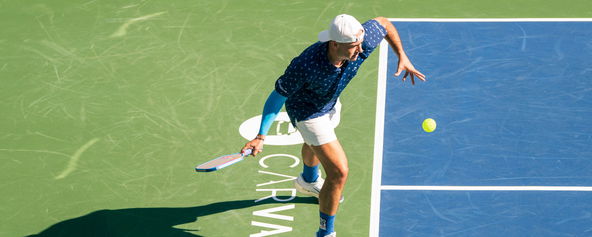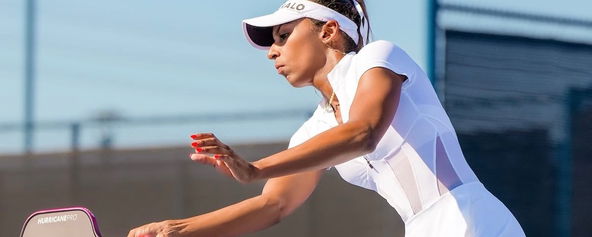
Junior PPA parent tip: Handling bad line calls on the court
DALLAS, TX – We’ve all been there, parents and junior players alike.
You’re in a competitive match and you hit a gorgeous deep shot – and your opponent calls it out. But, you know what you saw. The ball was in. You’ve drilled this shot a thousand times. There’s no way it was out.
All of this is much worse when you watch it happen to your kid.
I sat down with a few Junior PPA parents and asked how they handle these frustrating moments with their child. Here’s what they shared:
“You know, it’s tough,” said Daniela Eisman, mom of 11-year-old Bennet Miller. “I always tell my son that two wrongs don’t make a right. And if it’s a bad line call, just suck it up and get the next one.”
Eisman also shared some practical strategies to avoid this issue all together.
“We’ve also gotten some advice from people to not hit the shots too deep, keep it just in the line,” advised Eisman.
One of Eisman's top priorities is good sportsmanship during matches. After all, pickleball is a growing sport, but the community is relatively small.
“I always tell him to be conservative with the calls,” Eisman explained. “I never support making bad calls. Good sportsmanship is the most important thing out there.”
“He recently played a match and he made so many generous calls. I was actually proud of him for doing that because if it’s questionable, I’d rather you just call it in and play it. He made me very proud that day,” she continued.
After all, they are just kids. The importance of being an honest person should be taught just as often as effective dinks and third shot drops.
However, Ricky Thais, father of 13-year-old Rex Thais, encouraged his son to pick and choose his battles on the court. And sometimes, Thais needs to draw the line.
“Bad line calls will be made,” said Thais. “I told my son that he needs to stand up for himself when he believes that the call is wrong, but don’t be aggressive and a jerk about it because it’s karma.”
“It’s good to give people the benefit of the doubt, but if the opponent intentionally makes a bad call, and calls it out when it’s clearly in, then he needs to stand up for himself,” he added.
This goes to show that while teaching your child the fundamentals of the game is key, of course, emphasizing other important life skills along the way can make a real difference, too.
There are always going to be trials and tribulations on the court, as there are with any sport, but it’s how you help youngsters navigate those challenges that really matters in the long run.
Related articles

Everything you missed in pickleball pop culture in February 2026
February might be the shortest month of the year, but it certainly delivered big moments.
6 hours ago
-Victoria Radnothy

Breaking down the moves from Trade Window #2 of the 2026 MLP season
Stay up to date with the latest moves from Trade Window #2.
9 hours ago
-Will Daughton

3 things to watch for on Tuesday at PPA Newport Beach
After undergoing surgery to repair a torn lateral meniscus in late 2025, Alex Crum will make his 2026 PPA Tour debut on Tuesday.
12 hours ago
-Will Daughton

Corsetry on the courts: How 11NIL became pro pickleball’s most popular dress
Co-founder Katrina Glusac shares the inside scoop behind the premium activewear brand's success.
5 days ago
-Victoria Radnothy